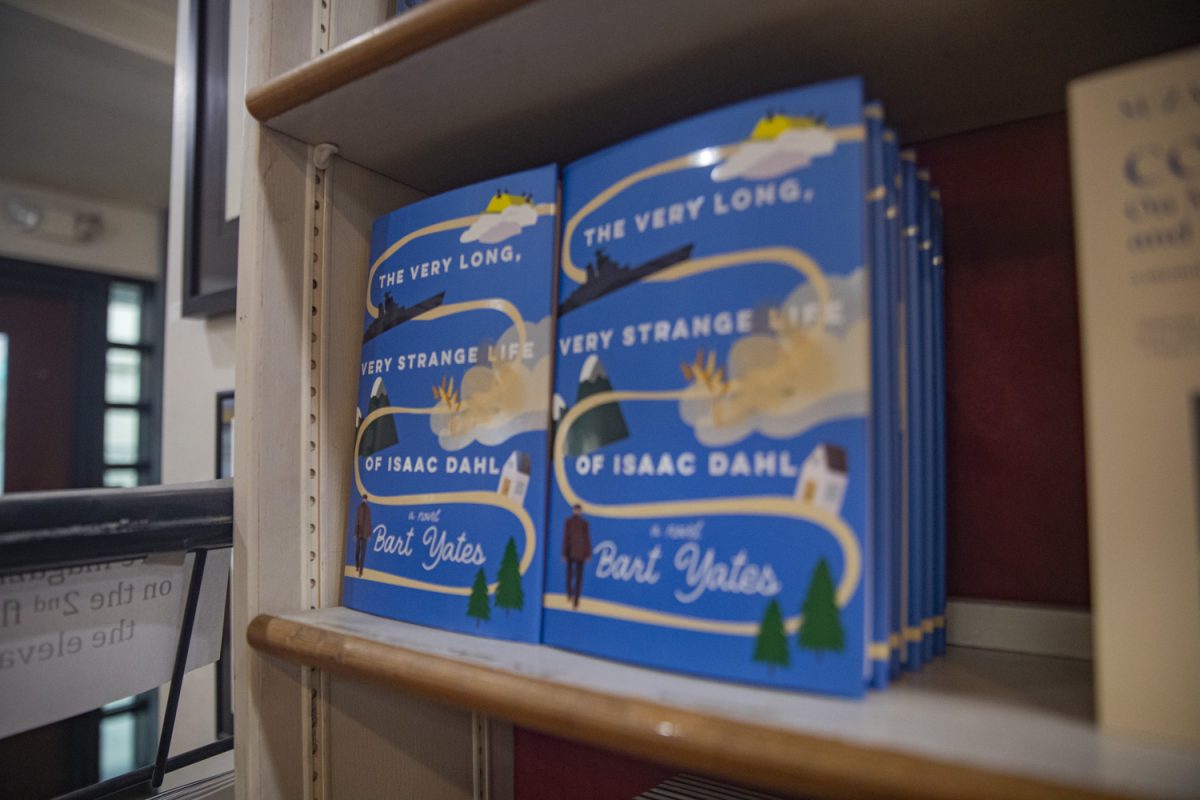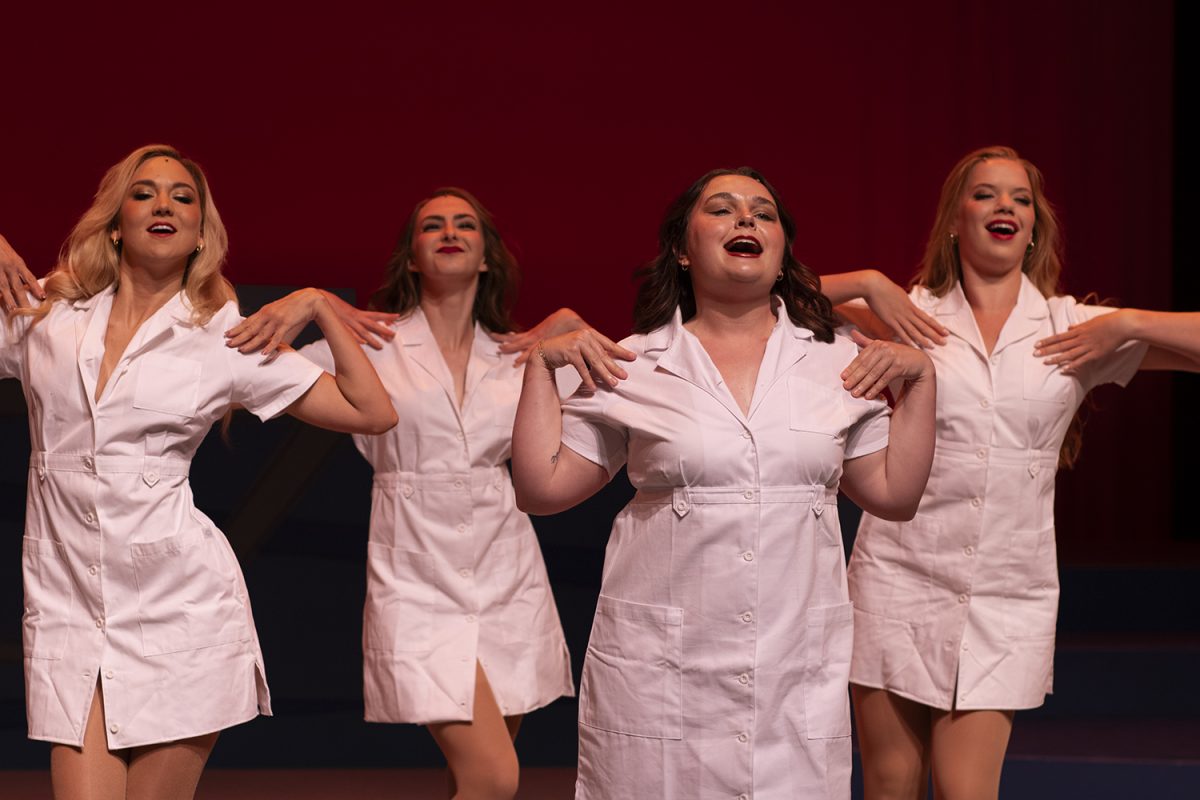The economic crisis of 2008 left no one untouched. It meticulously strummed each bar of the economic ladder.
This shared experience will be the subject of Chrissy Hogue’s one-woman show The Stupid Economy, at 8 p.m. Friday at the Englert, 221 E. Washington St. Admission is $20 in advance, $25 at the door.
“We settled on the economy as the theme,” said Robert Lynn, who wrote the play for Hogue. “It’s the one thing that affects us all.”
The show is a character-driven comedy, giving the personal accounts of seven women living in America between 2008 and the present. It includes a businesswoman who understands the mechanics of the crisis, and spans to a mother who has lost her husband and turned to drugs. All of them are played by Hogue.
“My initial, overly ambitious plan, was to write about 50 characters, and then [Hogue] and I would choose the six to eight best ones to include in the show,” Lynn said. “I realized that this was simply not going to happen, so I aimed for characters from various rungs of the economic ladder. The great part was knowing that whomever I created, [Hogue] had the talent to play them wonderfully.”
Because of the diversity of the characters in the play, Hogue and her touring manger, Holly Flood, feel that everyone will find a character to relate to.
An apparent standout character to both was Lamonica Johnson, a character who might come across as cold and brash but also has sensibility and wit.
“[Hogue] does a tremendous job with those seven women,” Flood said. “[She] affects everyone watching.”
Lynn agrees, praising the way the actor can change her voice, facial expressions, and mannerisms from character to character.
“[Hogue] is a master at the small things that make a character real, believable, and three-dimensional,” Lynn said.
As a one-woman show, there are certain aspects that differ from the standard play. The set consists primarily of a table, a chair, and a coat tree. Costume changes are done on stage. And there’s no one else on stage for Hogue to turn to for support.
“The difference [between a full show and a one-woman show] is tremendous,” Hogue said. “Being alone heightens audience expectations. I have to really rely on myself and on the audience to be the other character. It offers a lot of opportunity for growth as an actor.”
Even though the show is a comedy, it doesn’t shy away from more weighty matters. It contains elements of drama and realism.
“What makes a comedy even more strong is having seriousness,” Hogue said. “It gives the audience a moment of sadness and reflection.”
While the play was written as a comedy, those involved hope to see the audience thinking about the play beyond just its humor.
“I have always performed pieces that are intended to inspire action,” Hogue said. “It’s our job to understand the economic crisis.”
The show is meant to be an experience that is both entertaining and informative.
“I want people to laugh and cry and talk about our country’s economic situation long after the show ends,” Lynn said. “If they’re spurred to action, that would be great. We’re in a lot of trouble as a country, and the politicians are not getting it done, so it’s up to us. And we might as well get started with some laughs.”
THEATER






